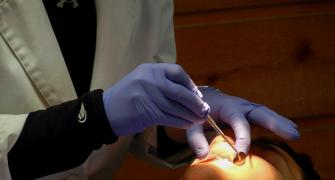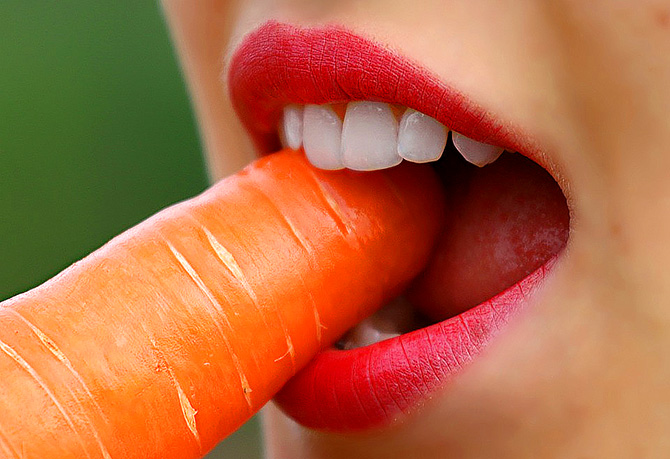If gum infection is ignored or not taken care of at an early stage, it could lead to heart disease, diabetes, respiratory ailments, or stroke, warns Dr Karishma Jaradi, head dental surgeon at Dentzz Dental.

While most of us talk about toothache or the changing colour of our teeth, gum ailments is rarely spoken about.
Truth be told, at least 75% of the population over the age bracket of 35 years are more prone to have some form of gum ailment or infection.
Unfortunately, gum ailments or periodontal disease can have far-reaching impacts on your overall well-being too.
This is because there is a close relation between your gum health and your overall health.
If ignored or not taken care of, gum infections could lead to heart disease, diabetes, respiratory ailments, or stroke.
One must make a note of the preliminary signs before the silent disease takes a toll on your dental and holistic health.
Keep a check on the below mentioned red flags to understand if you have been experiencing one or more of these signs of gum disease:
The warning signs
1. Bleeding gums
The biggest sign that you have healthy gums is when they don't bleed while you eat hard foods or during brushing or flossing.
Hence, if you are noticing blood in your gums when you floss, it is possible due to the accumulation of bacteria along the gum line, causing gingivitis.
This is the initial stage of periodontitis and should be immediately taken care of to avoid further problems. It is advisable to consult your dental expert if you have been experiencing this symptom.
2. Receding gums
If you have noticed that your enamels tend to look longer when you smile, it may indicate that your gums are pulling away from the base of your teeth.
Triggered by a microbial infection that destroys gum tissue, receding gums can be a big warning sign for gum illness.
3. Continuous bad breath
Bad breath, or halitosis, is the most common indication of gum disease.
This is because the bacteria causing odour in the mouth can multiply thus leading to unhealthy gums.
If you have a constant bad taste in your mouth or you feel your breath may have a foul smell that does not seem to go away, it may be a sign of impending gum disease.
4. Gums that are tender or swollen
If you witness that your gums are sore, inflamed, or cause discomfort, this is enough to set off the alarm bells.
Gum inflammation typically occurs when your gums are trying to discharge harmful bacteria that are known to cause an infection in the mouth.
This type of distension and redness has the ability to impair your gum and bone health. It can even lead to eventual tooth loss if left unattended.
5. Sensitivity of the tooth
While there are many factors causing dental sensitivity, it can also be a consequence of gum disease.
This is because recurrently swollen gum tissue can expose the root of your enamels, making it quite sensitive to external stimuli.
This exposure can be very detrimental to your enamels and needs prompt treatment to avoid worsening of the condition.
Most people tend to overlook the condition of our gums when it comes to upholding our dental health and rather emphasise on getting a white smile instead. However, one must note that healthy enamels require healthy gums to thrive.
Hence following optimum oral hygiene is the most significant action that a person can take to avert and address gum disease.
Here are some good dental habits you must follow in order to maintain teeth and gum health:
1. Proper teeth brushing
Effective enamel brushing is very significant in paving way for a healthy mouth and gums.
It has been recommended that brushing twice a day by making use of a soft-bristle toothbrush and fluoride toothpaste can help in improving your dental health.
Brushing the teeth at an angle 45-degree angle to the gums can help restore gum health.
Cleaning the insides of the front enamel by gently turning the brush vertically and making numerous short strokes along each tooth is also a recommended dental practise to improve gum health.
2. Choose the right toothpaste
This is an important step when it comes to improving your gum health.
When you choose your toothpaste, you must safeguard that it should contain fluoride which is very beneficial for reinstating your overall enamel health.
3. Floss daily
While you focus on our brushing techniques, ensure that you are not ignoring flossing which is equally an important part of dental care.
Flossing facilitates in eliminating food particles and plaque stuck in between the enamels and gums.
If the food and plaque remain in these areas, this can lead to tartar build-up, which is a hard bacterial accumulation which can lead to gum disease.
4. Brushing post every meal
This is an important habit to practise for restoring your gum health.
5. Give your tongue a gentle scrubbing too
The overall mouth, including the tongue, has the ability to house bad bacteria that can lead to foul breath.
So, lending your tongue a gentle scrubbing by making use of a soft-bristled toothbrush must be a part of maintaining your dental hygiene.
6. Keep your diabetes in check
Diabetes and dental health are co-related. When you have diabetes, the high blood sugar levels have a possibility to take a toll on your overall body including your teeth and gums.
Hence, it's advisable to keep a check on your diabetes in order to uphold your gum health.
7. Rinsing with a fluoride mouthwash
Fluoride mouthwashes are exceptional for the prevention of gum ailments and plaque reduction.
These rinses guard your enamels longer from plaque and tartar and also help in removing the food debris stuck in your teeth and gums.
8. Be mindful of what you eat and drink
Sugar-rich and sticky candies that contain loads of sugar must be totally avoided.
When we intake these edibles, the bad microorganisms present in our mouths also feast on them. This can fasten the formation of plaque on your teeth and gums.
9. Intake of foods that are gum healthy
Foods like onions consist of antibacterial properties that can facilitate in protecting your gums. Hence adding these edibles to your daily meals will certainly improve gum health.
Leafy vegetables like kale and spinach are rich in Vitamin C that can help in reducing gum inflammation.
Dairy products like cheese and yogurt encompass protein compounds known as casein, which has an important role to play in reducing loss of enamel tissue. This also prevents enamel erosion, which can inhibit teeth weakening.
10. Get steady dental check-ups
Dental care appointments typically comprise of professional cleaning of the mouth which is an exceptional way to eliminate enamel tartar.
Professional cleaning can facilitate in eliminating the plaque that a person may have missed while teeth brushing.
A dental expert can also help in identifying the primary signs of gum disease and gingivitis, a condition in which the gums become reddened.
Early detection can facilitate in preventing more severe problems from occurring.
11. Quit smoking
Smoking and the use of tobacco products can make a person more vulnerable to gum disease because it deteriorates the immune system.
The earlier you quit smoking, the faster you restore your gum health.
Do remember that even with optimum dental hygiene habits, one is still at a peril for gum disease.
The exceptional way to keep gum disease at bay is to follow these tips and visit your dental expert on a steady basis.









